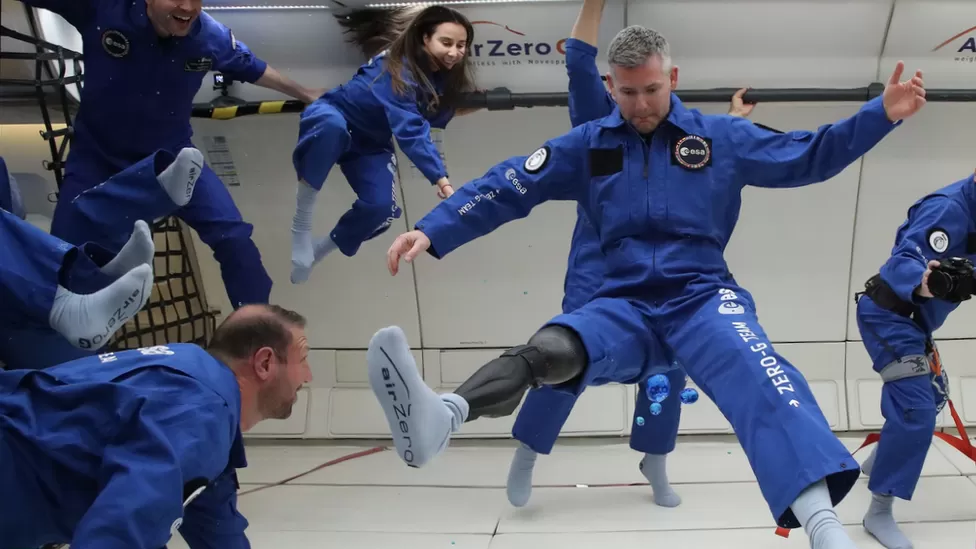John McFall is the European Space Agency’s first ever para-astronaut, selected to study how feasible it is for someone with a physical disability to live and work in space. BBC News joined him on board a parabolic flight, where he experienced weightlessness for the first time.
One minute John McFall is lying on the floor of a plane. The next, he starts to float upwards, still horizontal, seemingly levitating towards the ceiling.
He looks astonished – everyone on this far-from-normal flight does, as they slowly rise into the air. The sensation of being weightless, no longer pinned down by gravity, is extraordinary.
You feel totally out of control – because you are. Any tiny movement against something solid sends you catapulting around the cabin, bouncing into walls and people. It’s like being in a slow-motion pinball machine.
John is an astronaut candidate with a difference – he’s an amputee. When he was 19 he lost his leg in a motorcycle accident, and now uses a high-tech prosthesis.
He has now been recruited by the European Space Agency (Esa) to take part in a ground-breaking study assessing how to make spaceflight accessible to people with physical disabilities.
“I saw that the European Space Agency had announced that they were looking for an astronaut with a physical disability,” he says, “and I looked at the person specification and thought, ‘Wow, that’s me – I would love to give that a go’.”




